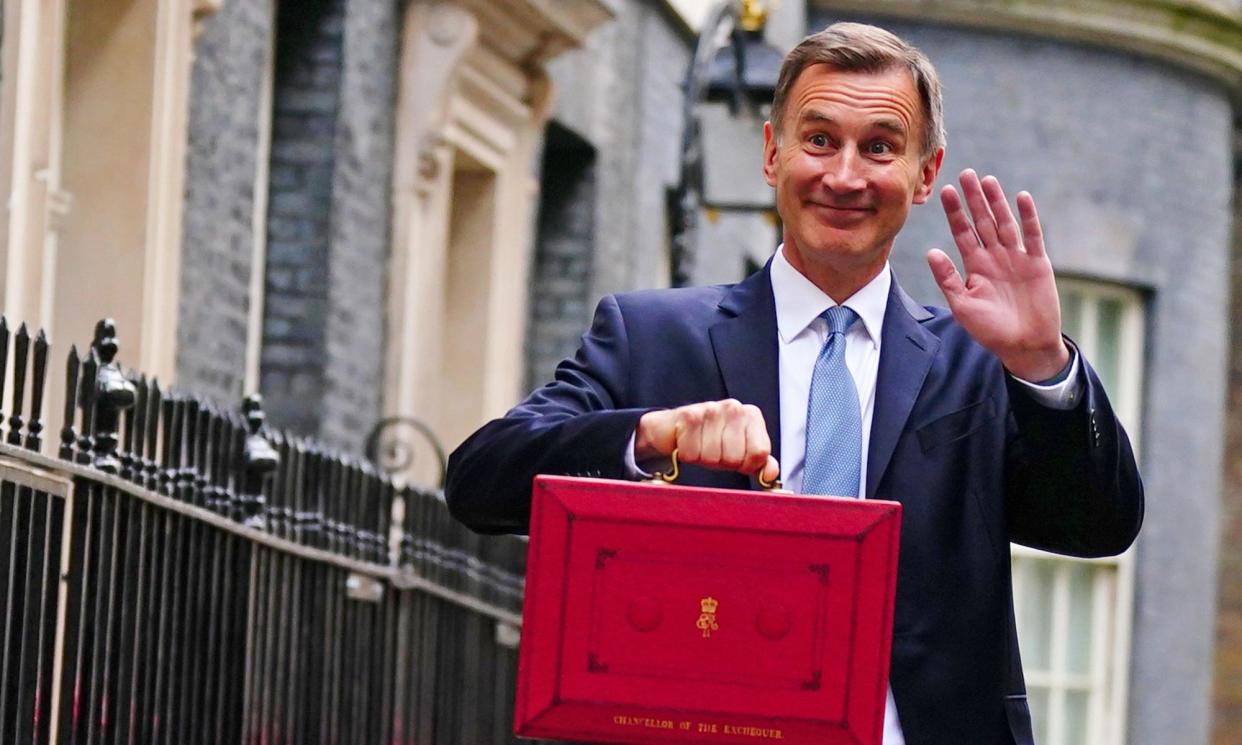Hunt considers poaching Labour’s plan to scrap non-domiciled tax rules

Jeremy Hunt is considering scrapping Britain’s non-domiciled tax rules in next week’s budget, it has been reported, in a move that would see him poach one of Labour’s key fiscal policies.
The decision is understood to be on a list of revenue-generating options drawn up for the chancellor and Rishi Sunak after economic estimates left them with less money than expected for tax cuts or spending pledges.
If it is announced in next week’s budget, the Conservatives would be mirroring a Labour policy that Hunt has previously criticised.
Abolishing the non-dom tax regime would raise an estimated £3.6bn a year.
Treasury sources told various newspapers on Wednesday that Hunt was mulling over scrapping or scaling back the tax break as among a range of last-minute options in the event that official forecasts deteriorated over the next few days and further hampered the prospect of budget tax cuts. A Treasury spokesperson said: “We don’t comment on budget speculation ahead of a fiscal event.”
There were 68,800 non-doms in the UK in the tax year ending in 2022, according to HM Revenue and Customs.
Under current rules, foreign domiciled nationals resident in Britain can earn money from capital abroad without paying UK tax on it for up to 15 years, provided they do not remit any income or capital gains back into the country. The rule has been used by Sunak’s wife, Akshata Murty, to save paying millions in UK tax.
The Guardian reported last month that Labour’s plan to scrap non-dom tax breaks would allow a four-year grace period for those with the status.
Research suggesting that scrapping the breaks could raise at least £3bn a year was cited by Labour when it announced the plans in 2022. The shadow chancellor, Rachel Reeves, has said abolishing the tax break in full would raise that amount each year and that Labour would use the money to expand the NHS workforce.
However, the party is also considering new regimes for temporary residents. One option under consideration is for individuals to be able to live as non-domiciles in the UK for four years before they pay the full UK tax.
In November, the chancellor suggested he did not know how much money scrapping the tax status would raise.
At the time Hunt said he would rather the super-rich stayed “and spent their money here”, adding he had been told by Treasury officials that they were “very unsure” about how much money the move would actually make.

 Yahoo News
Yahoo News 
